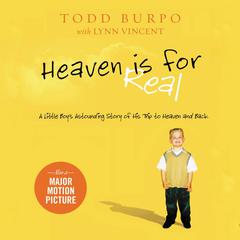 Play Audiobook Sample
Play Audiobook Sample
The Bad Food Bible: How and Why to Eat Sinfully Audiobook
 Play Audiobook Sample
Play Audiobook Sample
Quick Stats About this Audiobook
Total Audiobook Chapters:
Longest Chapter Length:
Shortest Chapter Length:
Average Chapter Length:
Audiobooks by this Author:
Publisher Description
Physician and popular New York Times Upshot contributor Aaron Carroll mines the latest evidence to show that many “bad” ingredients actually aren’t unhealthy, and in some cases are essential to our well-being.
Advice about food can be confusing. There’s usually only one thing experts can agree on: some ingredients—often the most enjoyable ones—are bad for you, full stop. But as Aaron Carroll explains, these oversimplifications are both wrong and dangerous: if we stop consuming some of our most demonized ingredients altogether, it may actually hurt us. In The Bad Food Bible, Carroll examines the scientific evidence, showing among other things that you can:
- Eat red meat several times a week: The health effects are negligible for most people, and actually positive if you’re 65 or older.
- Have a drink or two a day: As long as it’s in moderation, it will protect you against cardiovascular disease without much risk.
- Enjoy a gluten-loaded bagel from time to time: It has less fat and sugar, fewer calories, and more fiber than a gluten-free one.
- Eat more salt: If your blood pressure is normal, you should be more worried about getting too little sodium than having too much.
Download and start listening now!
The Bad Food Bible Listener Reviews
Be the first to write a review about this audiobook!
About Aaron Carroll
Dr. Aaron Carroll is a Professor of Pediatrics and Associate Dean for Research Mentoring at Indiana University’s School of Medicine, and Director of the Center for Pediatric and Adolescent Comparative Effectiveness Research. His research focuses on the study of information technology to improve pediatric care, health care policy, and health care reform. In addition to his scholarly activities, he has written about health, research, and policy for CNN, Bloomberg News, the JAMA Forum, and the Wall Street Journal. He has coauthored three popular books debunking medical myths, has a popular YouTube show called Healthcare Triage, and is a regular contributor to the New York Times’ the Upshot.
About the Narrators
Jeff Cummings, as an audiobook narrator, has won both an Earphones Award and the prestigious Audie Award in 2015 for Best Narration in Science and Technology. He is also a twenty-year veteran of the stage, having worked at many regional theaters across the country, from A Contemporary Theatre in Seattle and the Alliance Theatre in Atlanta to the Utah Shakespeare Festival in Cedar City and the International Mystery Writers’ Festival in Owensboro, Kentucky. He also spent seven seasons with the Oregon Shakespeare Festival.
Kate Rudd, actress and Earphones Award–winning narrator, has appeared in several independent films and shorts, as well as in multiple episodes of the television show Perks. As an audiobook narrator she has been a finalist for the prestigious Audie Award for best narration.













